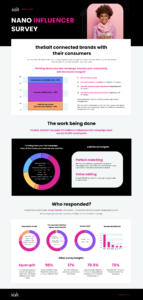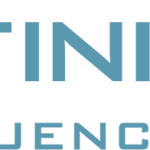
Interested in learning more about global trends in blogger and influencer marketing? The experts available through IPRN are available to help! To learn more, contact IPRN’s General Secretary Luis G. Gonzalez (luis.gonzalez@iprn.com) or visit the website at www.iprn.com.
Online influencers can have a major impact on how consumers perceive, interact with and purchase from a brand. Recently, the International Public Relations Network (IPRN) surveyed its members to uncover ways brands can leverage their relationships with bloggers and influencers all around the world.
Sourcing answers from nine countries, IPRN uncovered a number of critical insights on how to succeed globally in the world of influencers marketing.
One thing is for sure: Today, traditional PR isn’t enough. Influencer marketing has grown exponentially over the past few years, and is expected to be a $10 billion market by 2020. Bloggers and influencers must be incorporated into PR plans around the world.
China
Ye Wang of the Chinese firm Blue Digital notes the microblogging platform Weibo, with its 132 million daily active users, largely dominates online conversation. She says Weibo’s “Head Users” make a major impact.
“Head Users are those that have more than 100,000 monthly views, and they are usually key opinion leaders in their own sphere,” she said. “Addressing relations with Weibo Head Users is very important to daily and strategic PR activities due to their enormous influence on public opinion. PR professionals need to consider fan demographics, style, interaction with fans, and their frequency of advertising.”
Italy
Marta Sternai of Italy’s Twister Communications says blogger relations are critical to the firm’s daily work. She notes that toys, technology, and food blogs specifically hold great sway over their audiences.
“Today bloggers are as important as journalists,” she said. “Today in the consumer world, we don’t have clients who have only asked us for traditional media relations work. We perform daily scouting to find new bloggers with real followers and fair numbers, and we focus on them.”
Germany
Nuray Güler from primo PR in Germany states that Influencer Marketing in Germany will boom further this year and will develop more and more into long-term influencer relations.
“Long-term co-operations will be more effective than short-term activities, especially with micro-influencers who fit to the brand,” Güler said. “Also in the tourism, lifestyle and gourmet business there is still a lot of potential regarding different target groups. For example we see a change in silver surfers ageing 50 and more starting into the blogging business”.
Güler notes that another major communication opportunity not to be ignored is video. “The relevance of video among clients is getting more and more important, especially on Facebook. The trend of storytelling via videos turns marketers and communication specialists more and more to TV producers.”
Russia
Victoria Poyda, of Russia’s PR Partner, said bloggers are critical in the country’s B2C space—because bloggers are more trusted than most media.
“It’s effectively the only PR tool that can affect sales,” she said. “And it’s not just the top bloggers in respective industry that can make an impact. Bloggers and influencers with growing followings—say, an Instagram account with 20K followers—can be more receptive to working with brands.”
USA
Jan Gusich, founder of the U.S. agency akhia, notes that an endorsement by one popular blogger could put an unknown company on the digital map. And when it comes to traditional PR, digital placement is increasingly important.
“The answer is simple: follow your audience,” Gusich said. “You can work with the influencer to determine whether it makes sense to run a multichannel program (pushes blog posts, promotes on Twitter, shares out on Instagram) or a single-platform program leveraging just one tool (a popular YouTube channel, for instance).”
Spain
Trends in Spain reflect those elsewhere, with brands increasingly recognizing the power of bloggers and Instagram users.
“All kinds of social media influencers have taken on a lot of relevance in Spain,” said Evercom’s Alberte Santos. “Most consumer and lifestyle brands devote budget to influence these powerful voices, but you need to stand out to get their attention. We’ve found that a very personal approach works—we understand the topics those influencers are interested in and if their followers will be interested. It’s not so different from traditional PR.”
Diego Barcelo of Comunicación Iberoamericana agrees. “The importance of bloggers increases every year,” he said. “They’ve become leaders in their sector, and the impact they can have for a brand can be higher than that produced in advertising or traditional media support.”
Denmark
Interest in influencer marketing has increased over the past few years, says Gitte Hoyer of Kragelund Kommunikation. “It’s transitioned from ‘classic’ bloggers with their own platform to other social media influencers with well-followed YouTube channels or Instagram accounts,” she said.
“Succeeding with them takes a lot of screening,” Hoyer adds. “We consider the bloggers age, location and of course who follows them. We are not only considering the big bloggers but also smaller ones, who often have a very loyal group of followers.”
United Kingdom
Pauline Gillan of the UK’s McOnie Agency says reputation and authenticity are both crucially important in order for a brand to succeed in the blogger and influencer realm. “The relationships are based on trust and loyalty, and those don’t happen overnight,” Gillan said. “It takes work to create those great relationships.”
Peter Haddock, a consultant with Edson Evers, concurs. “Bloggers and influencers are overtaking traditional media with audience growth increasing dramatically and with audience specific channels,” Haddock says. “We have a much higher demand now for blogger engagement, and it’s highly valued through social channels.”
Gillan adds that new regulation means brands need to remain diligent. The UK’s Advertising Standards Authority (ASA) in 2017 specified the need for bloggers working with brands to indicate their sponsored posts, recommending hashtags (like #ad or #sponsor). This wasn’t without backlash, as brands felt this devalued the messaging. “So now, unpaid, organic posts from bloggers themselves are the most valuable—and we need to build that brand loyalty.”
Panama
Monique de Saint Malo Eleta of the Panamanian firm Stratego notes that food, hospitality and tourism have been the most impacted industries by the shift to influencer and blogger marketing.
“I think brands will need to up their budgeting for digital marketing in general,” she said. “Where journalists were once our most sought-after channels to communicate our messages to the public, now it’s also bloggers and influencers.”
- Automation and AI: Super-Tools to level up your business - 24th July 2024
- Salesforce Launches First Autonomous AI Agent - 19th July 2024
- WPP champions inclusive creativity at inaugural Unite South Africa Awards during Pride Month - 19th July 2024





